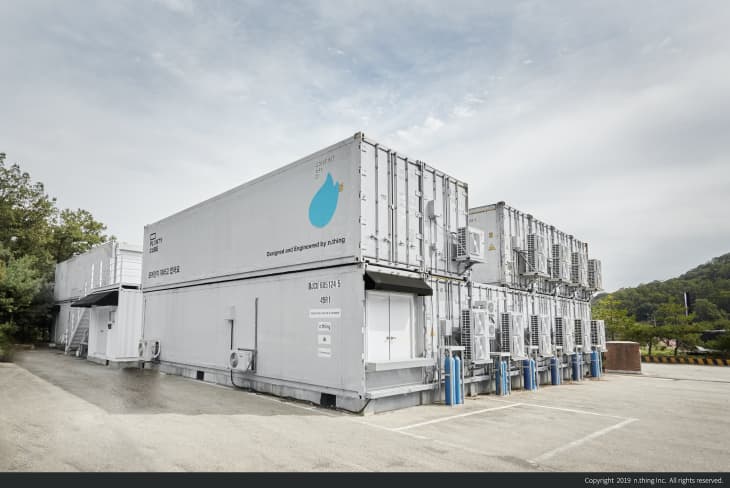These Stacked Shipping Containers Are Actually High-Tech Farms

For green thumb owners looking to take their plant parenting skills to the next level, allow us to introduce you to the Planty Cube, a smart vertical farming system developed by Seoul-based agricultural startup n.thing.
The hydroponic setup is based on “internet of things” technology and is comprised of a network of capsules that enables farmers to cultivate “high quality vegetables in a fully controlled environment, ensuring production over tens of times higher than ordinary farmland per unit area, CES explains. The higher crop yields are directly linked to Planty Cube’s ability to support year-round growing.
In pursuit of n.thing’s mission to turn everyone into a farmer, Planty Cube is off to a running start as the winner of CES 2020 Best of Innovation Awards. The intricate system resembles a shipping container but upon closer inspection is actually multiple shelves of planters, or pickcells, that house seeds.
Each pickcell is connected to the modular system, which is comprised of sensors that track each plant’s health and progress, adjusts humidity and temperatures in response to unexpected environmental changes, and also allows farmers to tend to their crops remotely via a smartphone. In the place of soil, the produce is grown via a nutrient that the system delivers to each plant. The system’s enclosed design prevents pests from infiltrating the crops. Not ready for an entire farm? Planty Cube has a solution for such an agricultural conundrum: It allows growers to choose how many units they start with, leaving them with the option of adding additional units as they see fit.
A major perk of the Planty Cube system is that it can be set up in multiple environments, such as restaurants, hotels and apartments. Its sustainable build helps to decrease environmental impact, further eliminating even more of the obstacles presented by traditional farming methods.